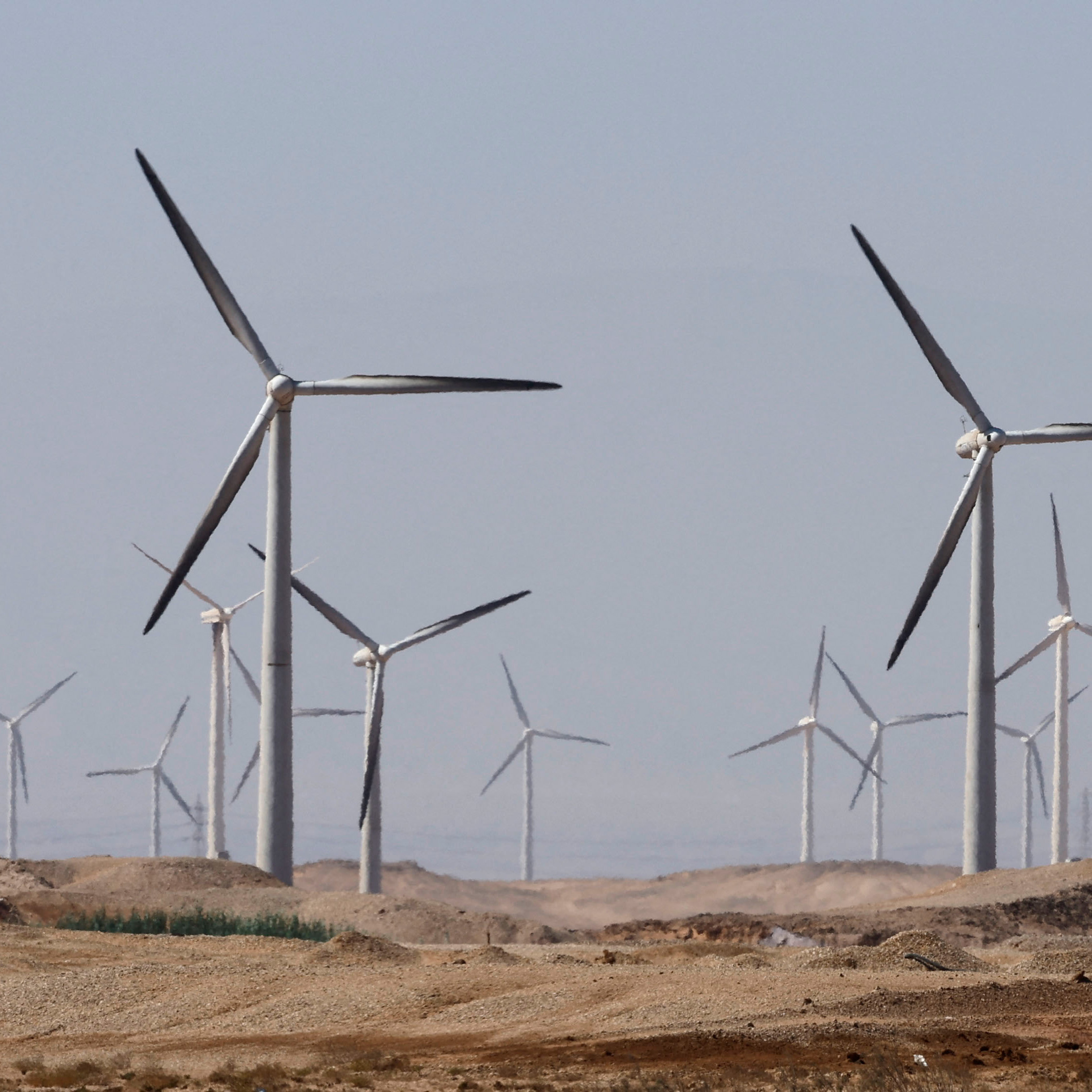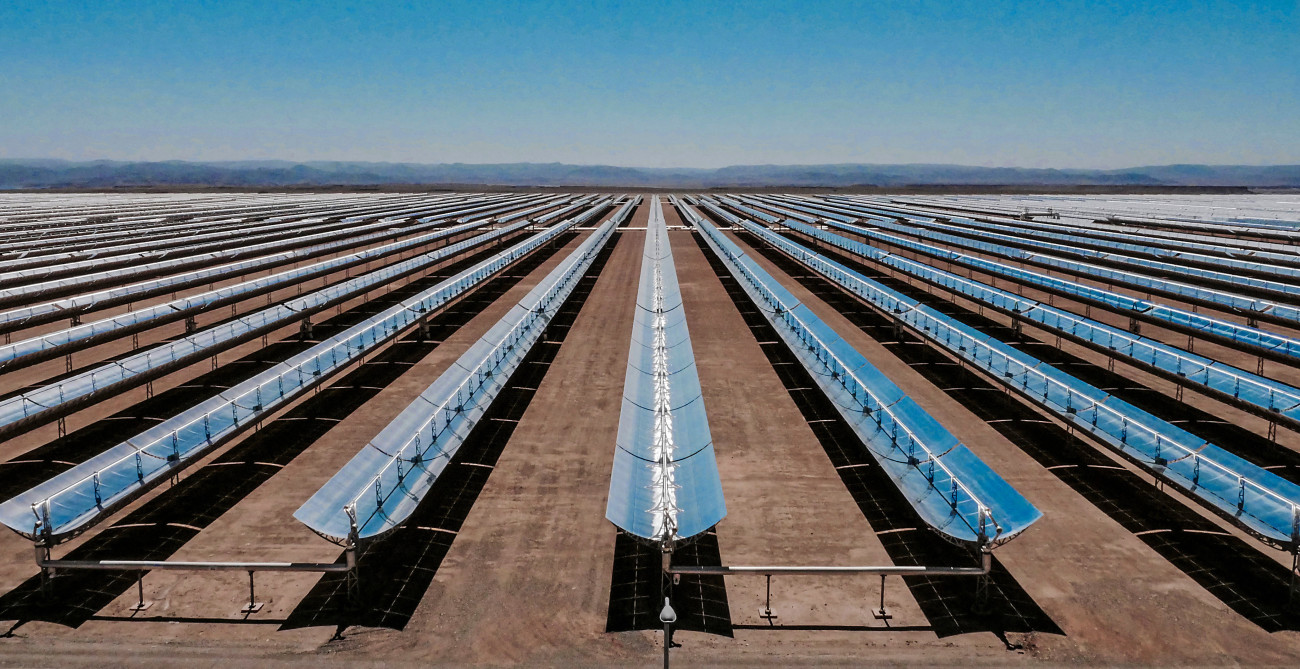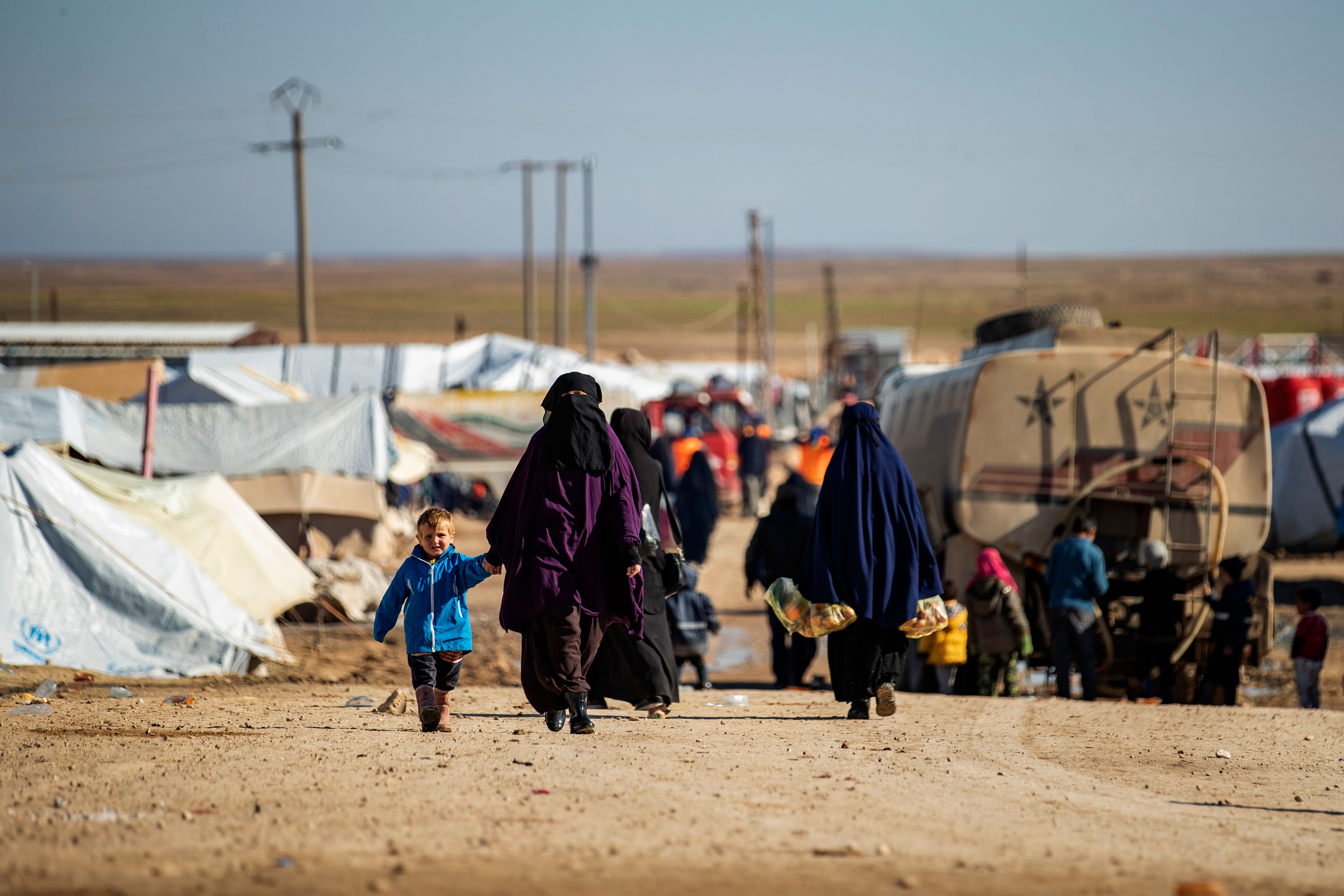
About the Project

This in-depth report explores North Africa's complex renewable energy journey, highlighting the divergent paths taken in each of the five North African countries and the thematic realities and challenges each faces. Through detailed analysis of transition plans, renewable policies, and the intricate challenges of water scarcity and limited finances, this volume examines how the region can balance energy security with climate goals while addressing economic and social inequalities in an era of global transition.

Read the Report
Dive deeper into the challenges and opportunities shaping North Africa's energy transition. Download the full PDF of this edited volume to explore in-depth analyses, case studies, and actionable insights on renewable energy, energy security, and regional cooperation across North Africa.

Rewatch the launch event
Watch the Dec. 16 webinar featuring an expert panel discussion on the challenges and opportunities shaping North Africa's renewable energy future. From governance and regulatory landscapes, to finance and regional cooperation, the panel covered the policies and partnerships needed to accelerate the renewable energy transition.
Chapter Synopses
Major Goals, Modest Gains: Morocco’s Renewable Energy Journey
Morocco has emerged as a leader in renewable energy on the African continent, advancing large scale renewable energy projects and policy reforms to translate its ambition into reality. However, the country still relies heavily on fossil fuels in its energy mix. Likewise, the country has struggled to meet its 2050 clean energy targets and has yet to marshal the necessary resources and funds to do so, writes Rachid Aourraz.
A Reluctant Giant Stirs: Algeria and the Energy Transition
Algeria stands at a critical crossroads in its energy transition journey, with recent gigawatt-scale solar projects marking a potential turning point for renewables in the country. However, a deep reliance and pride in the country’s oil and gas industry, restrictive policies, and a cumbersome investment environment limit Algeria's ability to forge ahead with its energy transition. Addressing these structural challenges will determine whether Algeria can successfully balance developing a renewable sector with its existing energy priorities, writes Andrew G. Farrand.
Misaligned Priorities: Rethinking Tunisia’s Renewable Energy Approach
Tunisia faces a critical need to expand energy production to support its development goals, but its limited access risks hindering economic growth and industrial competitiveness. Prioritizing renewable energy for domestic production can help the country unleash economic development, reduce reliance on fossil fuel imports, and achieve a more just energy transition aligned with global climate goals, writes Fadil Aliriza.
Breaking a Vicious Cycle: The Impact of Egypt’s Renewable Energy on Energy Security
While Egypt's energy security improvements alone cannot resolve its economic crisis, they offer a chance to alleviate resource pressures and mitigate energy shortfalls. By prioritizing investment in renewable energy sources like wind and solar, Egypt can reduce its reliance on gas, stabilize its energy sector, and strengthen partnerships with international allies to navigate its economic challenges, writes Colby Connelly.
The Dry Transition: Water Security and North Africa’s Renewable Energy Future
The water-energy nexus underscores the vital interplay between energy resources and water management in addressing North Africa's climate and resource challenges. By leveraging innovations like water management and balancing water requirements with the energy transition imperative, the region can advance both water and energy security, aligning with global climate commitments for a sustainable future, writes Mohammed Mahmoud.
Broken Promises and Unfulfilled Potential: The Implications of Limited Climate Financing
Achieving equitable climate financing for developing countries requires a stronger commitment from developed nations and financial institutions. It also requires streamlining access, bolstering institutional capacity, and leveraging innovative tools like debt-for-nature swaps and emissions trading revenues. By fostering collaboration between public and private sectors and addressing systemic challenges, the global community can unlock critical investments to mitigate climate impacts, support adaptation, and drive sustainable development in the most vulnerable regions, writes Mirette Mabrouk.
Powering Past Politics: The Promise of Energy Transition in a Fragmented North Africa
Advancing renewable energy in North Africa requires not only governance and regulatory reforms, financial resources and administrative capacities, but also requires fostering cross-border cooperation through streamlined projects, investment in infrastructure connections, and experience sharing. International partnerships can play a pivotal role in helping the region overcome political and infrastructural barriers to achieve an efficient and integrated energy future, writes Intissar Fakir.












